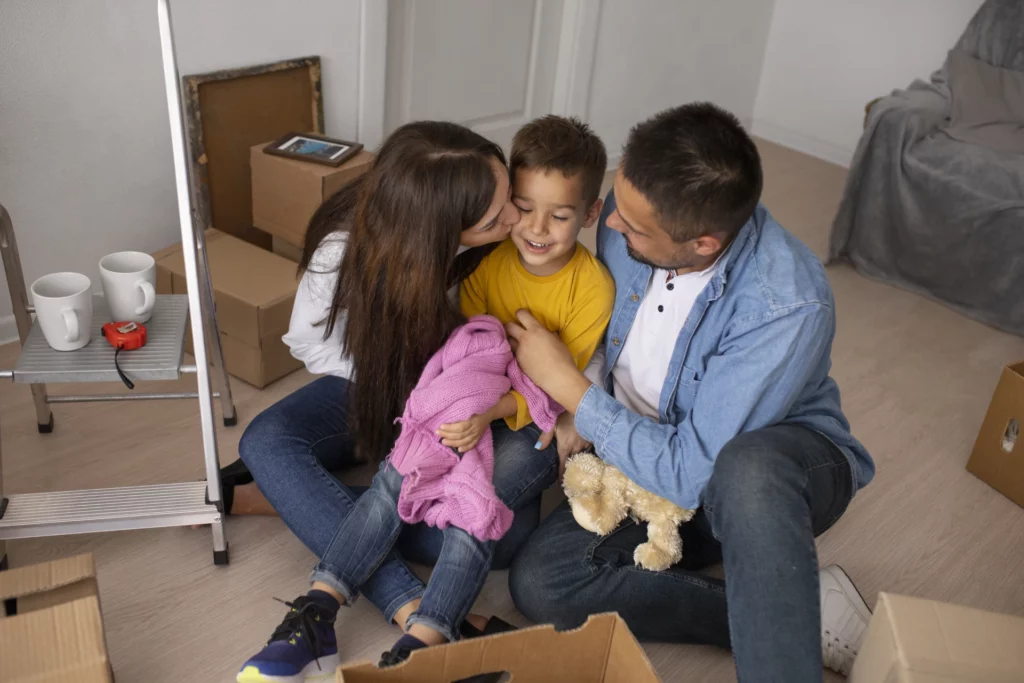Legal Requirements to Relocate with Children in New York with Shim Law
Relocating with children in New York City means facing a web of legal requirements that protect the child’s best interests and parental rights. Parents planning to move must fully understand the laws governing custody, visitation, and relocation. Failure to comply can lead to costly, stressful legal battles. This post provides a comprehensive overview of all essential laws, court procedures, and parental obligations related to child relocation in New York State.
It also explains how Shim Law Group can help clients navigate these complex issues successfully, protecting their rights and ensuring smooth transitions

Understanding Child Custody and Relocation Laws in New York
Critical Legal Aspects of Relocation with Children in New York
When a parent wants to relocate with their child, several critical legal points arise:
Parental Rights and Custody Types
Custody can be:
- Legal Custody: Right to make important decisions about the child’s welfare. Both parents can share, or one parent can have sole legal custody.
- Physical Custody: Where the child primarily lives. The parent with physical custody has day-to-day care responsibilities.
A parent with sole physical custody usually needs court permission to relocate if the other parent has visitation or legal custody. In joint custody cases, both parents’ consent and involvement are vital.
Court’s Analysis in Relocation Disputes
Courts apply a multi-factor balancing test focused on the child’s best interests, examining:
- How relocation impacts the child emotionally and developmentally.
- The strength of the child’s relationship with each parent.
- Plans to preserve visitation or contact with the non-relocating parent.
- Distance and travel feasibility for visitation.
- Stability of the child’s current environment versus benefits of the new location.
Motivation behind the move to ensure it is genuine and not to alienate the other parent.
Modification of Custody and Visitation Orders
- Continuity and stability for the child remain as intact as possible.
- Non-relocating parent’s visitation rights are preserved meaningfully.
- Visitation schedules are adjusted realistically, considering new distances.
Enforcement and Remedies in Relocation Cases
If a parent relocates without notice or court approval, the other parent can:
- File motions to enforce custody and visitation orders.
- Request the child’s return to the original home jurisdiction.
- Seek custody or visitation modifications, sometimes reducing the relocating parent’s rights.
- Pursue contempt charges against the violating parent, with penalties including fines or jail.
Common Pain Points for Parents in Child Relocation Cases
Relocation disputes create stress and challenges for parents, including:
- Uncertainty About Legal Obligations: Many parents do not fully understand their rights or the legal requirements for relocation notices and court approval.
- Delays in Court Decisions: Family Courts often face heavy caseloads, causing slow resolutions and prolonged stress.
- Emotional Turmoil: Custody battles emotionally affect parents and children alike, adding strain to an already difficult process.
- Financial Strain: Legal fees, travel, and court costs can quickly add up during relocation disputes.
- Risk of Losing Custody or Visitation: Failure to comply with legal procedures can result in losing visitation privileges or custody rights.
Legal Process for Relocation with Children in NYC
The legal process includes:
1. Notice of Intent to Relocate: The relocating parent must notify the other parent at least 90 days before moving. This notice includes new address details, reasons for moving, and proposed visitation schedules
2. Response from the Other Parent: The non-relocating parent may agree, negotiate visitation changes, or file an objection with the court.
3. Filing a Petition if Needed: If there is disagreement, the relocating parent files a petition to modify custody or visitation. The non-relocating parent may contest this.
4. Court Hearing: Both parties present evidence on how the move affects the child. The court weighs all factors before deciding.
5. Court Decision: The judge issues a ruling approving or denying the move or modifying custody/visitation terms.
6.Enforcement of Orders: Both parents must follow court orders or face penalties.
How Shim Law Group Assists in Relocation with Children Cases in New York
Shim Law Group offers expert legal support tailored to relocation disputes by:
- Clarifying Your Legal Obligations: Explaining notice requirements and court processes clearly to prevent costly errors.
- Handling All Court Filings: Preparing petitions, motions, and responses efficiently and accurately to meet deadlines.
- Protecting Your Parental Rights: Aggressively representing you in court with compelling evidence and persuasive arguments.
- Negotiating Visitation Plans: Crafting practical visitation schedules that maintain strong parent-child relationships after relocation.
- Reducing Emotional Stress: Offering compassionate guidance to help you through the emotional toll of custody disputes.
- Providing Strategic Advice: Knowing when to litigate versus settle, always with your child’s best interests and your rights as top priorities.
Why Choose Shim Law Group
Shim Law Group stands out because:
- The firm has deep expertise in New York family law and relocation cases.
- Attorneys communicate clearly, keeping you informed every step of the way.
- They develop personalized strategies that fit your unique situation.
- They prioritize protecting your parental rights while focusing on your child’s well-being.
- They have a proven history of successful outcomes in relocation disputes.
- The firm offers a supportive environment to minimize stress during difficult times.
FAQs
1. How much notice must I give if I plan to relocate with my child?
2. What happens if the other parent disagrees with my relocation?
3. Can a court deny my request to move with my child?
4. What if I move without informing the other parent?
5. Does the child’s opinion matter in relocation cases?
6. How can Shim Law Group support me during a relocation dispute?
What to do
If you’re planning to relocate and concerned about custody, don’t delay. Protect your future. Protect your child. Shim Law Group is ready to stand by your side and defend your parental rights in every New York courtroom. Contact us now for a consultation and ensure the best possible outcome for you and your child.
Visit shimlawgroup.com or speak with us today to schedule a confidential consultation.







